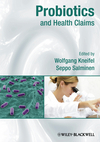Probiotics on Digestion

The team found eating the yoghurt twice a day for seven weeks did not alter the mix of microbes in the intestines of the women or the mice. However, when they took a closer look at the mice, they found there were significant changes in some of the bacterial enzymes involved in metabolizing carbohydrates.
Many of the key changes noted in the highly controlled laboratory environment were also found in the seven pairs of twins.
This complex system works to break down certain nutrients that human bodies could not otherwise digest, prevents the growth of harmful bacteria, produces nutrients such as vitamin K and biotin as well as hormones to tell our bodies when to store fat.
The research, published in Science Translational Medicine, could help scientists analyze the many health claims made by makers of probiotic yogurts.
“This is a proof of principle. We have developed an approach to test the health effects of probiotics that focuses on how those microbes influence the dynamic operations of our gut microbial communities,” Gordon said.
He added that their long-term goal was to develop ways to improve the nutritional value of foods.
From the October 28, 2011, Prepared Foods' Daily News.
Looking for a reprint of this article?
From high-res PDFs to custom plaques, order your copy today!







